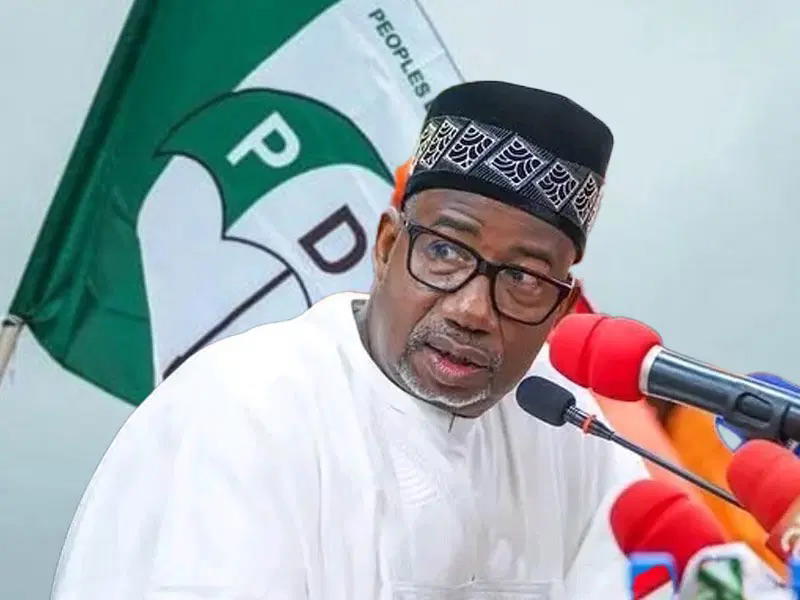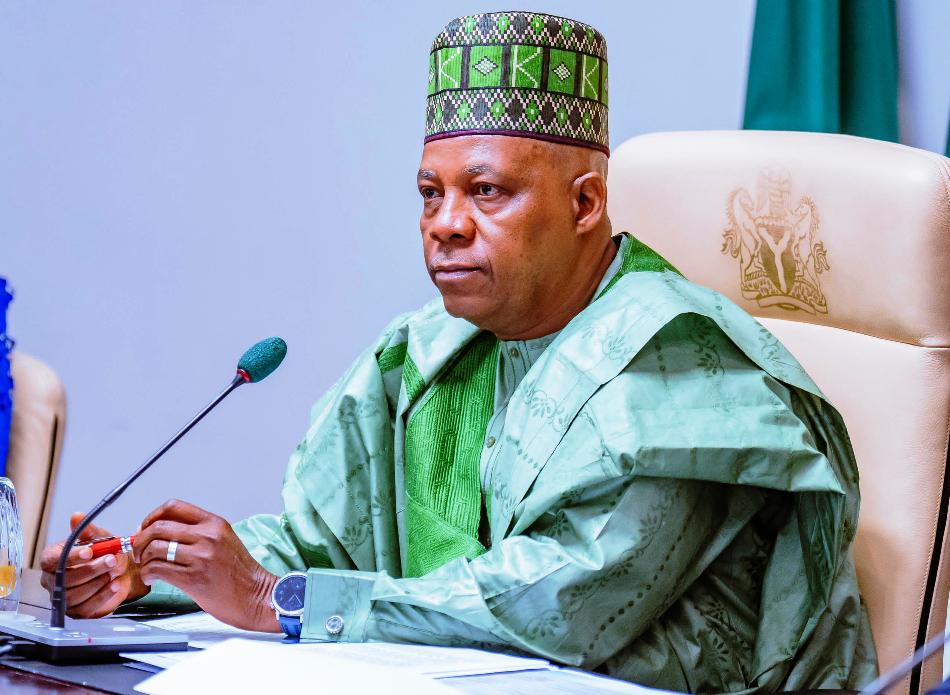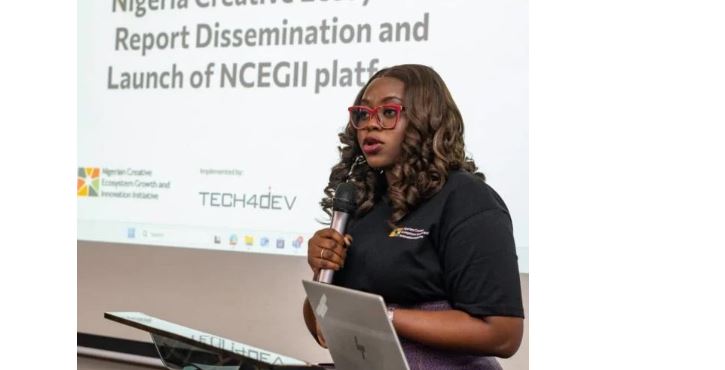
Silent killer: Soaring drug costs, ignorance fueling hypertension deaths,
•Over 41m Nigerians at risk as hypertension cases surge
•Patients forced into deadly ‘drug holiday’ as treatment becomes unaffordable
•Experts warn of national emergency as sudden deaths spike nationwide
•We’re addressing problem – FG
By Chioma Obinna
Hypertension, often referred to as the “silent killer,” continues to reshape the lives of millions of Nigerians quietly.
For many hypertensive patients, there is constant fear of going to bed and not waking up, as the country faces a disturbing trend of sudden deaths, many of which are linked to uncontrolled hypertension.
With over 41 million Nigerians living with hypertension, challenges of proper control of the disease have currently worsened, with the unprecedented high cost of drugs, coupled with the hardships occasioned by the economic woes of the country.
Today, Nigeria reports cases of sudden death almost daily. A diagnosis of hypertension now feels like a death sentence, not necessarily from the disease itself, but from the overwhelming financial burden it brings.
Many patients, out of fear and ignorance, are reluctant to stay on lifelong medication.
Studies show that over 41 million adult Nigerians, about 38 to 40 per cent, of the population, are hypertensive.
This means at least four in 10 adults are living with the condition. Of these, only 60 per cent are aware of their status, about 30 per cent on treatment, and just 10 to 15 per cent have their blood pressure under control.
Findings by Vanguard showed that hypertension is no longer silent in Nigeria. It is screaming through rising mortality rates, overburdened hospitals, and the agonising choices of patients forced to pick between meals and medication. Sudden deaths are now so frequent that experts suspect hypertension plays a major role, even though families often do not disclose the causes.
Pharmacists, drug manufacturers, physicians and cardiologists warn that millions of Nigerians are silently battling high blood pressure without the means to treat it adequately. For many, the monthly cost of staying alive is unaffordable. As more patients are forced into drug holidays due to rising medication costs, experts fear the trend of sudden deaths will only worsen.
Hypertension has taken a heavy financial toll on Nigerians like 46-year-old David Ogbo, who was diagnosed five years ago. “I didn’t even feel sick. It was during a routine check-up that the doctor said my blood pressure was dangerously high,” David recalled. Since then, managing the condition has been an uphill battle. “Some days I feel fine, but the constant fear that something could go wrong is exhausting.”
“I spend about ¦ 15,000 monthly on medication,” he said, shaking his head. “That’s a big chunk of my income. Sometimes, I have to choose between buying my drugs and paying other bills.”
Another patient, Nwankwo Chijioke, at one of the pharmacies visited, told Vanguard that at 54, it had been a struggle. He spends around ¦ 25,000 a month on medications. “Once, I skipped my pills for two weeks because I was broke. I ended up in the hospital with severe complications, it was a wake-up call.”
The emotional toll of living with hypertension is just as significant. Chijioke admitted that the condition has affected his relationships. “I don’t have the energy I used to, and I feel like a burden to my wife sometimes.
“It’s lonely. People don’t see hypertension as serious until it’s too late. I’ve lost two close friends to stroke because they couldn’t afford their medications.”
Both David and Chijioke believe more needs to be done to support hypertension patients, especially as the prices of drugs have continued to soar.
“We need affordable medications. The government should provide free blood pressure checks in communities and subsidise drugs. Awareness campaigns are also critical. People need to know how serious this is before it’s too late.”
Investigations showed that across the country, millions of Nigerians are silently battling high blood pressure, often without the means to treat it adequately. For many, the monthly cost of staying alive is now unaffordable.
Price of life
Pharm. Amakeze Azubike, Chief Executive Officer of Health Peak Pharmaceutical, said: “Three years ago, premium brands of hypertensive drugs, such as Novasc, were about N2,000 per sachet. Today, it is over N8,000, and you need at least three sachets a month. That’s up to N24,000–N28,000 monthly. For the average Nigerian, that’s unsustainable.”
Amlodipine, one of the most prescribed antihypertensives, comes in many forms. “We have premium brands such as Novasc and Asomex, and then generics as Poco Amlodipine, Teva, Amlovar, and Amlong. The generics cost between N1,000 and N1,500 per month, still expensive for many.
“Novasc, the premium brand, was selling for about N2,000 but rose to N6,000. Now, it’s over ¦ 20,000. The generic amlodipine, like Teva from the UK, was sold for N400 three years ago. Today, generics cost between N1,000 and N1,500 for a one-month supply. Asomex was under N5,000 in the past, then rose to N8,000 for a month’s supply. Everything has tripled. Exchange rates, clearing charges, and the importation of active pharmaceutical ingredients (API) all contribute to the soaring prices.”
“The ones we produce in Nigeria still rely on imported ingredients. Even locally manufactured drugs are affected by the exchange rate. Imported brands directly marketed in Nigeria are hit hardest,’’ Azubike said.
Currently, a pack of generic Amlodipine 10 mg sells for N3,300, depending on the area. Albitel 80 is N7,500; Lozartan N2,000; Plagerine N5,400; Lisinopril 10 mg N1,400; Nifecard XL 30 mg N9,900; and Amlodipine Nigeria, ¦ 650 per sachet, among others.
According to Azubike, many Nigerians self-medicate by walking into pharmacies to buy drugs without prescriptions.
“Hypertension treatment isn’t one-size-fits-all. You must consult a doctor. Sometimes, a patient buys amlodipine, but it doesn’t work not because it’s fake, but because it’s the wrong drug for them,’’ he said.
He explained that before prescription, a doctor might require an ECG or echocardiogram to determine the cause of the hypertension, adding that “it could be cholesterol, valve issues, or clogged arteries. You can’t treat what you haven’t diagnosed.”
While the federal government recently implemented tariff waivers on pharmaceuticals, experts like Azubike said the policy was yet to reflect in real prices. “The ingredients used in local drug production are still imported. Until we reduce dependency on imports and fix exchange rates, drug prices will continue to rise.”
Skipping drugs, skipping death
For a 52-year-old tailor, Chinedu, he now buys his blood pressure medication “once in two months.”
Chinedu said: “I can’t keep up. I either buy my drugs or feed my family. Sometimes, I just pray.’’
However, experts have warned that skipping medication has deadly consequences.
“Poorly treated hypertension leads to stroke, cardiac arrest or heart failure. We’re seeing unprecedented levels of these conditions,” warned Pharm. Olumide Akintayo, former President of the Pharmaceutical Society of Nigeria, PSN. He said this explained the current sudden death crisis in Nigeria where people, even those under 30, are slumping and dying.
Over 41m adult Nigerians at risk – Prof Akin Osibogun
In his response, the Executive Director of NCD Alliance, Nigeria, Prof Akin Osibogun, warned that hypertension was on the rise, with over 41 million adult Nigerians now living with the problem, a sharp rise from less than 10 per cent in 1990 to nearly 40 per cent today.
‘’In 1990, when the National Survey on Non-Communicable Diseases was conducted, the prevalence of hypertension among Nigerians, aged 18-65 years, was below 10 per cent. Today, the prevalence in the same age bracket is 38-40 per cent,’’ Osibogun said.
The alarming statistic, he added, was a clear sign that Nigeria was sitting on a public health time bomb.
He said hypertension, often called the “silent killer,” was now a leading cause of stroke, heart attacks, and sudden death among adults.
“Many Nigerians don’t even know they have hypertension until they collapse or die suddenly,” said Osibogun, warning that the condition causes damage to critical organs such as the kidneys, heart and brain.
He explained that while the normal blood pressure reading is 120/80 mmHg, a diagnosis of hypertension was made when systolic pressure exceeds 140 mmHg or diastolic pressure exceeds 90 mmHg on two separate occasions.
He lamented that the rising cost of imported drugs, worsened by unstable exchange rates, is making treatment inaccessible to the poor.
Hypertension cuts across all socio-economic levels, but the poor are disproportionately affected due to limited access to affordable treatment.
While the government has promised to lower tariffs on pharmaceuticals, Osibogun emphasised that effective implementation must be monitored closely.
He disclosed that in a rare show of political will, speaker of the House of Representatives, Tajudeen Abbas, pledged legislative support to tackle hypertension when he hosted the NCD Alliance team in Abuja and permitted them to address lawmakers during plenary on May 20, in commemoration of World Hypertension Day.
He said the NCD Alliance, Nigeria, in collaboration with the Federal Ministry of Health, was pushing for stronger policy interventions, including better funding for non-communicable diseases, reduced taxes on essential medications and the deployment of trained health workers to underserved areas.
He said: “We must act now because hypertension is not just a health issue, it’s a national emergency.”
Untreated or poorly managed HBP fuelling unprecedented rise in strokes, cardiac arrests, others— Akintayo
Similarly, former President of the Pharmaceutical Society of Nigeria, PSN, Pharm. Olumide Akintayo, who also raised the alarm over the surging cost of hypertension medication, warned that untreated or poorly managed high blood pressure was fuelling unprecedented rise in stroke, heart attacks, and cardiac arrests across the country.
Akintayo revealed that while monthly generic hypertension therapy could cost as low as N5,000, branded medications could go as high as N200,000.
“It’s a question of your pockets,” he said, urging Nigerians to opt for quality generics, supported under the national essential drugs list.
He said the government must provide an enabling framework to ensure essential medicines were affordable, accessible, and safe.
“The bottom line is that government must create an enabling environment and framework to ensure the goals of the national drug policy are met,’’ he added.
Criticising what he described as physician-dominated federal ministry of health, Akintayo said President Bola Tinubu’s current strategy for the health sector was flawed and would continue to fail unless the pharmaceutical sector was given a stronger voice.
“President Tinubu will not succeed in the health sector except he listens and changes tactics. For as long as we keep the pharmaceutical sector in the hands of a rampaging and persecuting ministry, we will keep getting it wrong,’’ he said.
Akintayo called for the establishment of a Presidential Committee on Pharmaceuticals to directly oversee drug policy and access, referencing a now-dormant National Drug Distribution Guidelines, NDDG, and urged legislative backing to ensure its full implementation.
“You need legislative action to drive a sustainable and workable national drug prescription policy,” he said, stressing the importance of regulated distribution to prevent diversion and ensure affordability.
While commending some state-level successes, such as Kano’s implementation of a Coordinated Wholesale Centre, he lamented the lack of federal synergy and called on the government to prioritise homegrown solutions and local manufacturing, referencing the abandoned Expedited Medicines Access Programme as a missed opportunity.
“There are generics that are good and bioavailable, especially from local manufacturers. What we need is political will and the right leadership to drive pharmaceutical access and health equity for all Nigerians,’’ he said.
Leading killer hiding in plain sight, Prof Augustine Odili warns
Responding to the implications of hypertension, the President of the Nigerian Cardiac Society, Professor Augustine Odili, said while many cases of sudden death were linked to heart problems, the most common root cause remained undiagnosed or poorly managed hypertension.
He explained that cardiovascular diseases, particularly heart attacks and arrhythmias, were often silent killers.
“Well, a greater percentage of those sudden deaths are heart-related. Hypertension is the most common cause of heart disease generally, but there are other culprits such as coronary artery disease and hypertrophic cardiomyopathy. Many people die without knowing they were even at risk,’’ he said.
A professor of cardiovascular medicine revealed that 38 per cent of adult Nigerians live with high blood pressure, lamenting that only 30 per cent of those diagnosed were on treatment, and that fewer than 15 per cent had their blood pressure under control.
Regional spread of hypertension
He said the study showed that the South East records the highest prevalence, while diabetes closely linked to hypertension was more widespread in the South-South.
In the study published in Global Health Journal, it was found that the overall age-standardized prevalence of hypertension was 38.1 per cent and this varied across the geo-political zones as follows: North-Central, 20.9 per cent; North-East, 27.5 per cent; North-West, 26.8 per cent; South-East, 52.8 percent; South-South, 44.6 per cent; and South-West, 42.1 per cent.
He added: “Untreated hypertension and diabetes are major risks for stroke, heart failure, kidney disease, and sudden death. Unfortunately, most people don’t know they’re hypertensive because the condition has no symptoms. That’s why we encourage everyone over 40 to check their blood pressure regularly at least once a year.”
Prevention
Addressing prevention, Odili stressed the need for lifestyle changes.
“Exercise more, eat less, stop smoking, reduce alcohol. And if you’re diagnosed, follow through with your medication. We also need government support for indigenous drug production to improve affordability,’’ he added
To tackle awareness, he said the Nigerian Cardiac Society had launched a programme, “Know Your Numbers”, aimed at promoting blood pressure checks in public spaces such as markets, banks and airports.
According to him, community CPR training is also being introduced, so that “if someone slumps suddenly and you know CPR, you might save a life.’’
Ignorance costing lives, says Pharm Okotie
Supporting the call for lifestyle reform and early intervention, Pharm. Jonah Okotie, former secretary of ACPN Lagos, criticised the widespread fear of life-long medication. “It’s not about whether you’ll take drugs forever, it’s about whether your blood pressure is properly controlled. Ignorance is costing lives,” he warned.
Okotie also decried the economic barriers to hypertension care, noting that medicine costs have skyrocketed due to exchange rates and import dependence.
He advocated health insurance and sincerity in its implementation, adding that “we need a working system where everyone contributes a little, so anyone who falls ill can get treated. Health shouldn’t be the one thing Nigerians want for free.”
He recommended health insurance as a major strategy to reduce the financial burden of hypertension on hypertensives.
Why medicines are expensive—Patrick Ajah, MD, May&Baker
In the views of the Managing Director of May & Baker PLC, Mr. Patrick Ajah, the rising cost of medications in Nigeria is a pressing concern, especially for the average citizen.
Ajah attributed this to a confluence of factors, primarily the heavy reliance on imports for both finished drugs and raw materials.
“Many of the active pharmaceutical ingredients are imported, and with the current exchange rate challenges, these medicines are bound to appear expensive to the ordinary man.
Ajah emphasised the burden of lifelong medication for chronic conditions such as hypertension.
“For infections, you might take drugs for a week, but for hypertension, it’s daily, for life. That’s why it feels particularly costly,” he explained.
He noted further that local drug production, while slightly cheaper than imported finished products, still faced challenges due to imported raw materials, fluctuating forex rates and operational costs.
Despite government efforts, such as waivers on duties for active pharmaceutical substances, Ajah highlighted that costs remained steep due to power expenses, labour and other operational requirements.
“Most manufacturers have had to increase prices up to three times in the last year alone. Ideally, these products should cost a third or two-thirds of their current prices,” he lamented.
Ajah described the grim findings from free screenings conducted during World Hypertension Day, noting that “you’d find market women with blood pressures of 170/100 and above, walking around without a clue. Even when advised to seek treatment, many don’t, either due to ignorance or financial constraints.
“If you stop, you’re going back to the same situation. And this is the reason, I guess, many people today are having a crisis. Sudden deaths are now common. Even younger people are collapsing and dying. When you check it, it’s either they have untreated hypertension or their blood pressure is very high. And many of them didn’t know. So I think it’s very important that people get to know their status.”
He called for heightened government intervention to make these life-saving drugs affordable and to expand health insurance coverage.
Local production of drugs
Ajah pointed to the high operational expenses stemming from unreliable infrastructure.
He said: “We’re spending three times more on power than we did two years ago. Pharmaceutical production requires 24-hour power for temperature control and stability. The cost is astronomical.’’
While noting that the brain drain of skilled professionals was exacerbating the situation, Ajah said: “We’re struggling to find qualified pharmacists. It can take months to fill a vacancy, and pharmaceuticals are not industries where you can cut corners with unskilled labour.’’
On the way forward, he said: “The hope for Nigeria lies in local drug production. However, without significant improvements in infrastructure, government policies and support for manufacturers, the dream of self-reliance in pharmaceuticals will remain elusive.’’
Local manufacturing key to reducing cost of hypertension drugs
Responding to the growing public outcry over the high cost of hypertension drugs in Nigeria, the National Agency for Food and Drug Administration and Control, NAFDAC, said there were ongoing efforts to promote local manufacturing as a sustainable solution.
The Deputy Director in charge of Public Relations at NAFDAC, Mrs Christiana Obiazikwor, said the agency was committed to reducing reliance on imported medicines, which often inflated costs for consumers.
She stated: “The high cost of essential drugs, including those for hypertension, is a pressing concern. NAFDAC has been working tirelessly to ensure that Nigerians have access to affordable, high-quality medicines by encouraging local manufacturing.”
Obiazikwor pointed to the agency’s foundational policy introduced in 2019, known as the 5+5 regulatory directive, which gives imported medicines a maximum registration validity of five years, after which products that could be manufactured in Nigeria were no longer approved for importation.
This measure, she explained, is aimed at creating opportunities for local manufacturers to produce these drugs, thereby reducing the financial burden on patients.
She said NAFDAC’s efforts were further strengthened in 2023 when the agency achieved WHO Maturity Level 3, a critical milestone that reinforced its regulatory capacity.
Following this achievement, NAFDAC engaged UNICEF’s supply chain in Copenhagen, Denmark, and hosted a workshop in Lagos to promote the patronage of locally manufactured medical products, including hypertension drugs.
“We cannot forget the challenges faced during the COVID-19 pandemic when the disruption in the supply of imported medical products left Nigeria struggling to meet its healthcare needs. This experience underscored the urgent need to build local manufacturing capacity to ensure both affordability and availability of critical medicines,’’ Obiazikwor said.
According to her, NAFDAC has taken a hands-on approach to support local manufacturers in improving their production processes and ensuring compliance with international standards.
The agency conducts regular inspections to assess good manufacturing practices and provides technical support to manufacturers to address gaps in their operations. Additionally, NAFDAC facilitates regular engagements with industry stakeholders to foster compliance and share best practices.
Obiazikwor emphasised that the agency’s support had yielded positive results, with local manufacturers now attaining international certifications such as ISO 13485.
“These achievements are not just about improving quality; they are also about driving down costs. Locally produced hypertension drugs eliminate the expenses associated with importation, such as tariffs and international shipping, making them more affordable for Nigerians,” she added.
Reacting to reports that many Nigerians were unable to afford life-saving hypertension drugs, Obiazikwor assured the public that NAFDAC was actively addressing the issue. “The high cost of hypertension drugs is unacceptable, and NAFDAC is committed to ensuring that these essential medicines are within reach of all Nigerians,” she said.
Responding to the alarming prevalence of hypertension among adults in Nigeria, Head of Cardiovascular Disease & Tobacco Control at the Non-Communicable Diseases, NCD, Control Division, Federal Ministry of Health and Social Welfare, Dr. Malau Toma, said the ministry had unveiled a comprehensive plan to address the growing health crisis.
Disclosing that the burden of hypertension in adults remained 38 per cent in adults, he underscored the critical need for action, describing hypertension as a “silent killer” that can lead to fatal complications like stroke, heart attack, and kidney failure if undetected and untreated.
“Most people are diagnosed incidentally due to the absence of symptoms in the early stages.
This makes regular health checkups and adherence to prescribed management vital in preventing severe outcomes,’’ Toma explained.
To combat hypertension, the ministry has developed and is implementing several key initiatives.
“We have put in place a National Policy and Multisectoral Action Plan for the Prevention and Control of Non-Communicable Diseases, as well as a National Guideline for the Prevention and Management of Hypertension in Nigeria.
‘’Public awareness campaigns, regular screenings, and adherence to the guidelines are core components of these efforts,’’ Toma stated.
He said the ministry has also focused on strengthening healthcare facilities and personnel, adding “we are equipping primary healthcare centers with essential tools and medications to manage uncomplicated hypertension and upgrading federal tertiary hospitals with advanced diagnostic and therapeutic resources for complex cases.’’
Training programmes for healthcare workers at all levels have been rolled out to ensure they are well-prepared to handle hypertension effectively.
Financial barriers to care are also being addressed
“We are expanding universal health coverage through federal and state health insurance schemes, implementing the Basic Healthcare Provision Fund at the primary healthcare level, and considering policies to subsidize or provide free anti-hypertensive medications for patients in need,” Toma revealed.
Toma emphasised the importance of collaboration in these efforts, adding that “we are working with government ministries, departments, and agencies, as well as international partners, to ensure a coordinated and effective response.”
He also urged Nigerians to take proactive steps in protecting their health.
“Hypertension can often be managed effectively with early detection, medical care, and a healthy lifestyle. I encourage everyone to take advantage of the resources and programs available, and to prioritize regular medical checkups,’’ Toma said.
The post Silent killer: Soaring drug costs, ignorance fueling hypertension deaths appeared first on Vanguard News.
,
Hypertension, often referred to as the “silent killer,” continues to reshape the lives of millions of Nigerians quietly
The post Silent killer: Soaring drug costs, ignorance fueling hypertension deaths appeared first on Vanguard News.
, , Idowu Bankole, {authorlink},, , Vanguard News, August 4, 2025, 2:38 am












